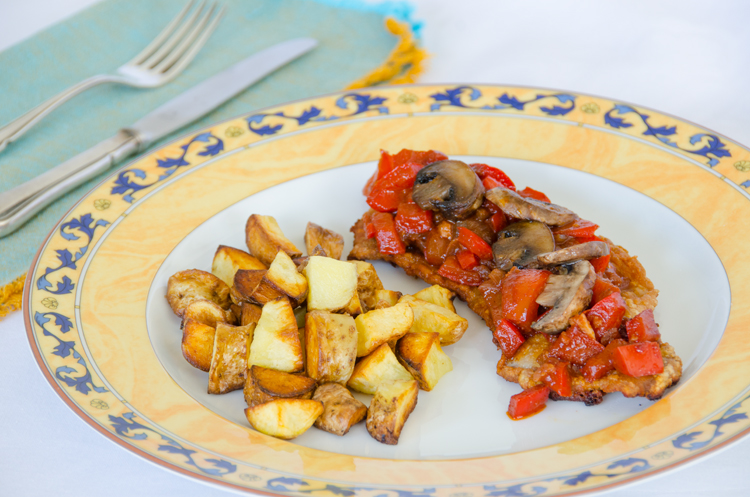Hannover was the first city in Germany to ban the name. Now it’s called Balkanschnitzel. The following year, the Interior Ministry of the State of Baden-Württemberg followed suit, no more Zigeunerschnitzel in its cafeterias neither.
In contemporary German the term “Zigeuner” has been replaced by “Sinti and Roma”. Zigeuner was also the term under which the Nazis persecuted the Sinti and Roma. More than 500,000 Gypsies perished during the Third Reich.
So, yes, the term Zigeuner is indeed politically incorrect when referring to the ethnic group. But going after a harmless dish? I doubt that it does anything. Eating a politically-correct renamed schnitzel does not inject the person who eats it with tolerance and respect for people with a different skin color, language, culture or religious belief. These attitudes come with the atmosphere in which the dish is eaten, no matter what its name is.
In a guest blog post called
“Food Names That Don’t Go Down Well” that I wrote a while ago, I pointed out that German has many other dishes with names that could be viewed as ethnically offensive: the half-moon cookies called Amerikaner (Americans), Franzosensuppe (Frenchmen’s Soup), Russische Eier (Russian Eggs)… the list goes on.
After reading that blog post about food names, a friend of mine living in Hannover emailed me the menu of a local steak restaurant. “Look,” he wrote, “there is still Zigeunerschnitzel on the menu, in the good company of Jägerschnitzel (Hunter Schnitzel) and Wiener Schnitzel (Viennese Schnitzel). Maybe the owner is simply insensitive because the kids’ menu suggests eating entire members of the Duck family with dishes like Donald Duck, Scrooge McDuck and Aunt Daisy.”

